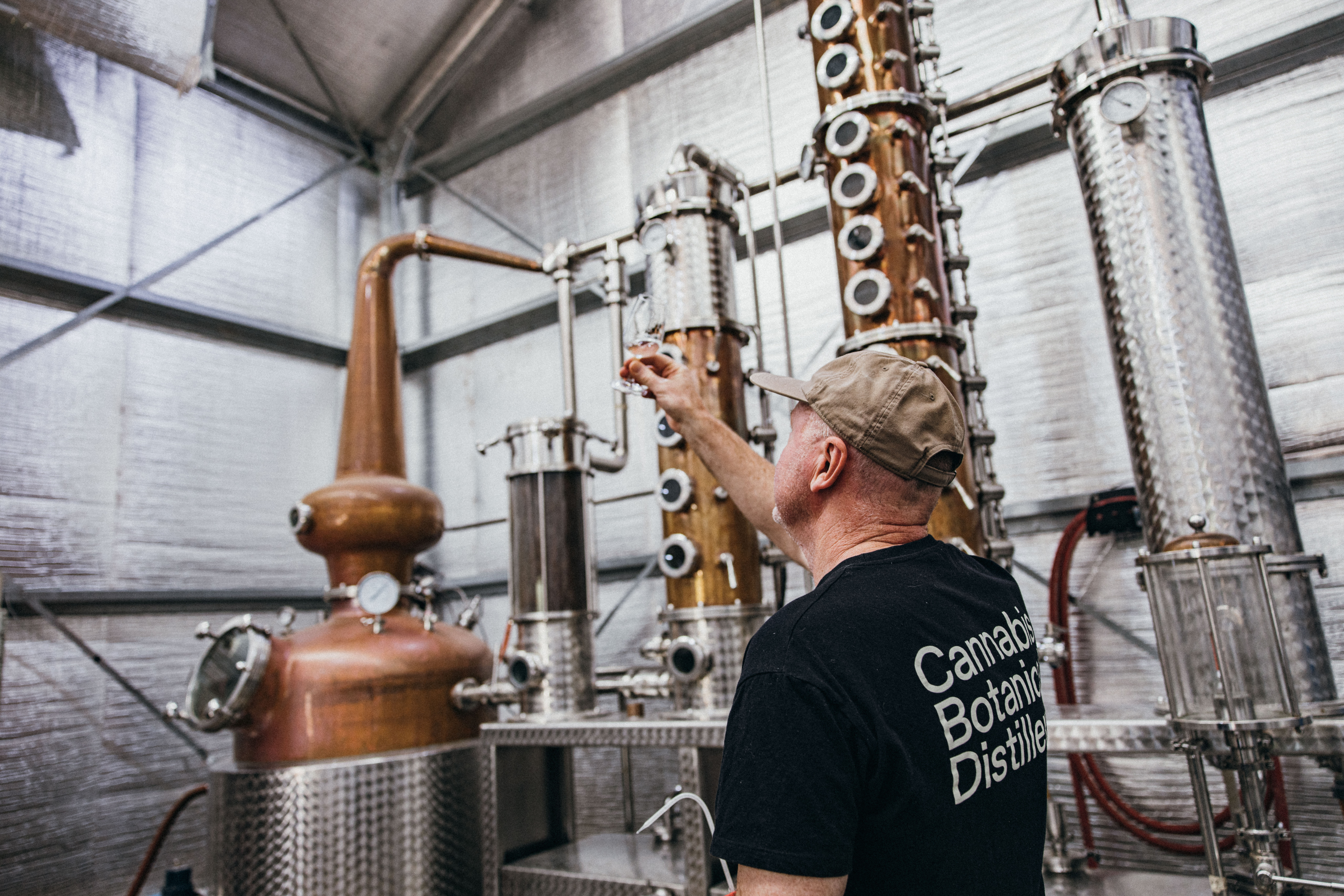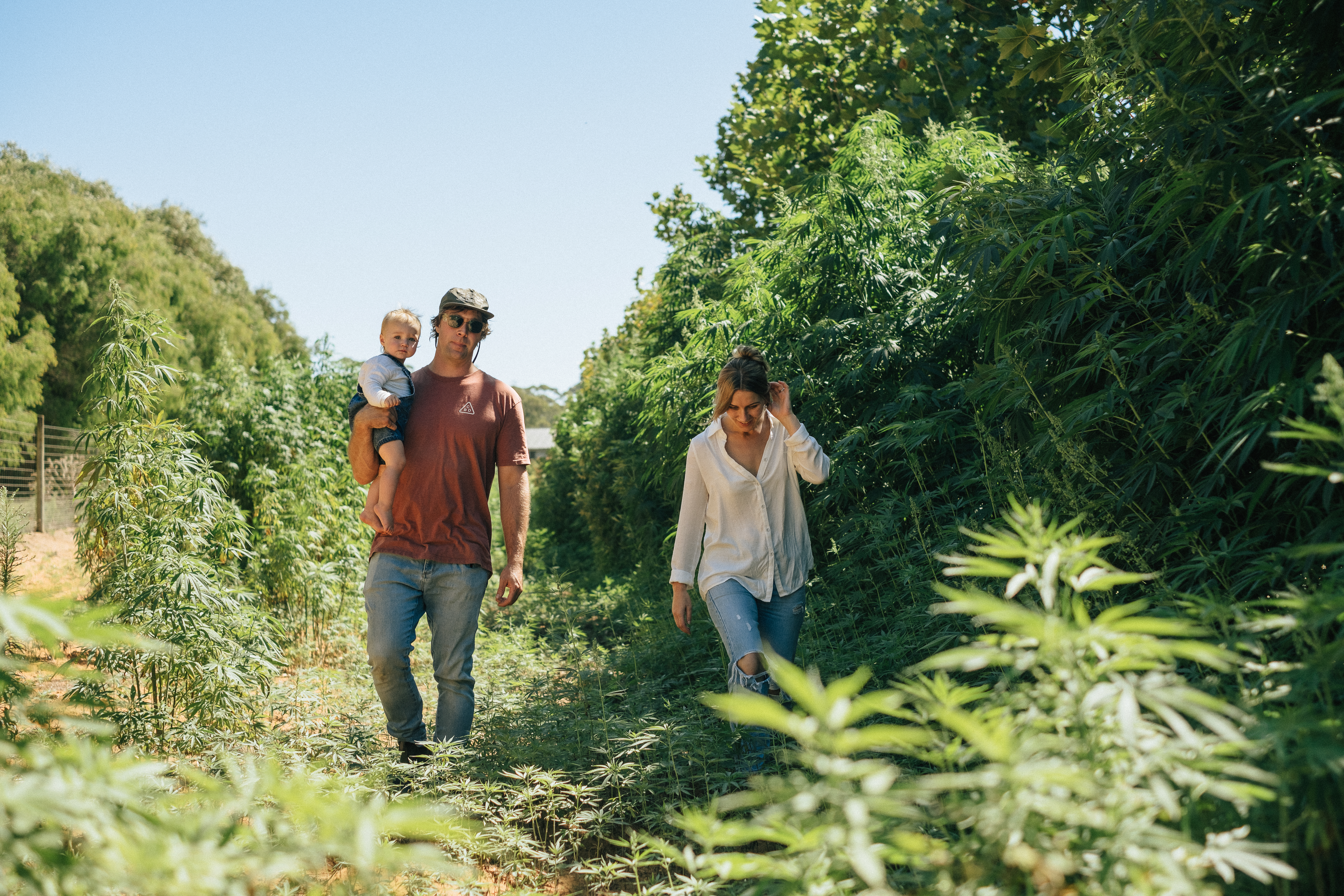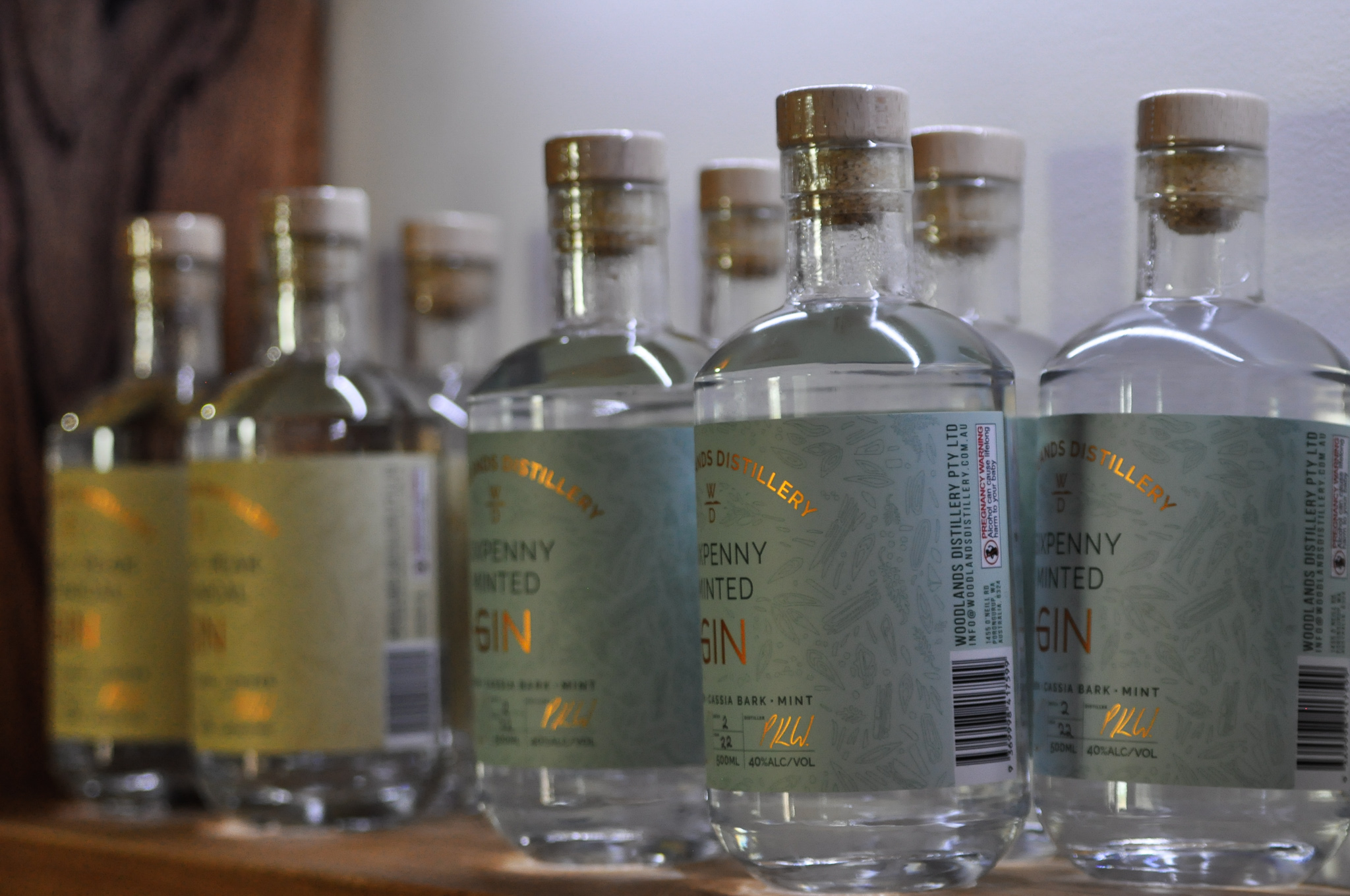
With its fertile soils perfect for cultivating golden fields of wheat and barley, the Great Southern has become a natural home for world-class distilling. Nestled among scenic ranges and renowned wineries, a growing number of distillers are crafting exceptional whiskey and gin, offering premium quality without the premium price tag.
From renewable energy sources to waste-free processes and local sourcing, distilleries in the Great Southern are proving their sustainability credentials, and even leading the way in sustainable innovations. In the Great Southern, you can be assured of drinking responsibly in every sense.
The Dam at Raintree

Housed on the vast acreage of Raintree farm, hemp spirits producer Cannabis Botanical Distillery is leading the way in sustainable spirts. From more than eight acres of cannabis sativa (hemp) sustainably grown and nurtured on the family farm each year, the distillery creates its signature cannabis-based beverages, which include sativa vodka and gin alongside canned seltzers and ginger beer.
With sustainable farming practices in place across Raintree’s operations, it made sense that the distillery would embrace a similar ethos. Unlike other cannabis beverage producers, the venue makes use of the whole hemp plant in its distilling processes with its signature ‘paddock-to-planet’ approach, something that was important from the outset to founders Matt and Chelsea Beaton.
“Regenerative farming practices with a zero-waste approach is something we pride ourselves on. Because just about everything in the process is done on our family farm, we have better control of the ingredients, so our customers can have greater confidence in what they drink,” explain the duo.
“With children of our own, and the deep appreciation we have for Denmark (Koorabup) and the Great Southern, we recognise as business owners we have an opportunity to set an example for how we can create, innovate and remain sustainable at the same time. We want to work with nature to create unique and exciting beverages that work towards a sustainable planet for the future generation of regional kids.”
Woodlands Distillery

Surrounded by the 1.1-billion-year-old Porongurup Range, and with immeasurable expanses of ancient native trees on its doorstep, the team at Woodlands Distillery gets a daily reminder of the importance of practising sustainability. While they didn’t set out to be sustainable, notes distiller Pete Waters, it quickly proved to be the more practical and economical option, and the distillery team is now on a long-term mission to improve its sustainability credentials.
While the distillery, which has its home in a repurposed shearing shed, has been operating for less than five years, it’s already made a name for itself in sustainable spirits. The approach, says Pete, is a simple one.
“If it’s grown locally, we try to incorporate it in our recipes, so for our gin bases one of our directors Tony Slattery grows white wheat, and another, Kelvin Ridgway, grows the red wheat that is used to make our wheat whisky. Then the wheat is mashed, fermented and distilled on the property, and all of the by-products are used back on the farm with spent mash fed to the cows and then the wastewater is used on the paddocks as fertiliser.”
This approach allows the team to keep by-products on the property, a cost-efficient method which also increases available reusable resources. Alongside gin and whiskey, Woodlands also distils vodka and brandy. Key botanicals used in its spirts are sources locally, including lemon myrtle, cinnamon myrtle, finger lime, bloodroot and Vietnamese mint with some grown on the property.
“There are certain botanicals we have to bring in from overseas, like juniper berries, but we have some juniper bushes planted on the property now to see how they’ll go in the climate. This is more of a long-term project though, as the bushes take a long time to bear fruit.”
Limeburners – Great Southern Distilling Company
Great Southern Distilling Company, producer of Limeburners Whisky, credits the premium resources available in Albany (Kinjarling) as integral to the success of its internationally awarded whiskys, while being committed to sustainable practices that protect those resources.
The distillery relies on Western Australian grain and Albany water obtained through aquifers below the distillery, to produce its spirits. For owner and head distiller Cameron Syme, implementing sustainable practices has been an ongoing goal for more than twenty years.
“We’ve been working on sustainability initiatives for over twenty years (and) our ultimate aim is to be hydrogen powered via renewable resources.”
While it may sound ambitious, Great Southern Distilling Company has long since adopted zero waste principles and carbon neutral goals, currently working to be carbon neutral by 2025.
Producing spirts out of its three distilleries in Albany, Porongurup, and Margaret River; it is its Albany-based distillery, Limeburners, perched on Frenchman Bay Road, that welcomes guests for a sought-after sip and something to eat in the Great Southern.
